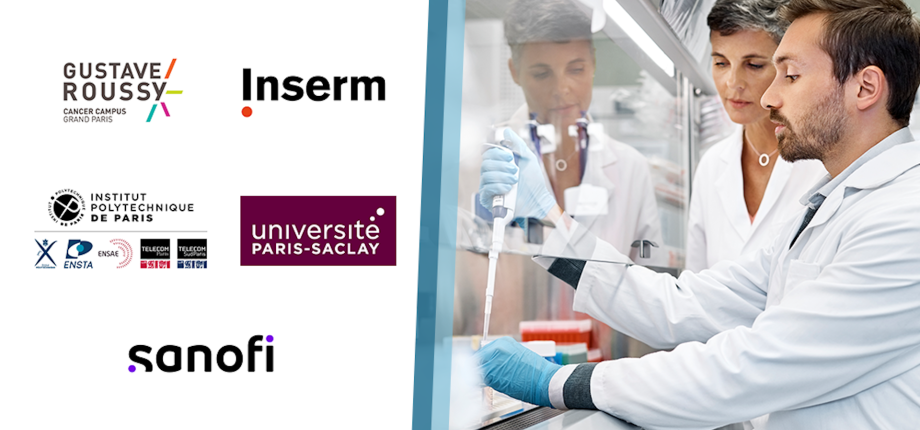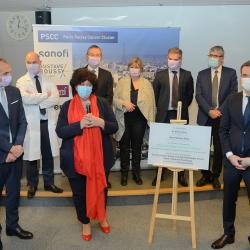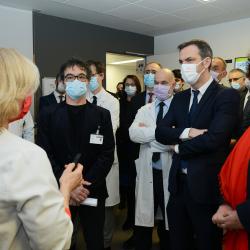Inauguration of the Paris Saclay Cancer Cluster with IP Paris

The Paris Saclay Cancer Cluster (PSCC) project will position France among the world leaders in the transformation of science into value in the field of cancer research.
The PSCC project is also in line with the objectives of Institut Polytechnique de Paris (IP Paris) to work on innovative missions to give solutions to societal challenges and directly serve patients. To achieve this, it relies on a high-potential ecosystem centered on players who make innovation in oncology possible: patients, hospitals, universities, start-ups, industrialists, investors, national research organizations, and public authorities.
"The focus of the Paris Saclay Cancer Cluster and its structure will enable us to develop unique expertise over the long term, supported by multidisciplinary collaborators and experts. Our ambition is to break down the silos that exist between research by data field, to reduce the barrier that persists for theoretical researchers to enter the health field, and also to transfer our research in the form of start-ups hosted within the cluster. The center will allow us to work on high quality medical data and to formulate clinical questions with data originators on one side and users of our algorithms and computational solutions on the other. This framework is key for cutting-edge research that has a direct impact on the patient," explains Elsa Angelini, Associate Professor of Medical Image Computing at Télécom Paris and the PSCC project coordinator for Institut Polytechnique de Paris.
The PSCC's ambition is to accelerate the availability of innovative treatments, improve the care pathway, life expectancy and quality of life of cancer patients. Cancer is indeed the second leading cause of death in the world, claiming nearly 10 million lives per year.
The PSCC's ambition is to bring together, in the south of Paris, expertise ranging from biology and medicine to bioinformatics and the use of artificial intelligence, in order to discover tomorrow's drugs that will transform the lives of cancer patients.
One cluster and four pillars to transform science into value
To meet the challenges of precision medicine and build tomorrow's oncology in France, the Paris Saclay Cancer Cluster aims to accelerate the maturation of innovative projects from 2022 onwards by proposing an offer based on four pillars:
- A collaborative, synergistic, and interdisciplinary integrated mode allowing members to evolve within a unique place where researchers, practitioners, academics, entrepreneurs, industrialists and investors meet; this mode will also facilitate networking via a digital platform and have an agile and balanced governance between stakeholders. The PSCC association expects to welcome 80 members within a year with a goal of 200 members by 2027.
- An ecosystem of excellence that gives the opportunity to exchange with multidisciplinary, scientific and medical experts and to have access to excellent training as well as multi-skills mentoring offer.
- Accelerating services and technologies thanks to a specialized technical platform with a unique combination of research equipment, specialized support services to accelerate proof of concepts and easy access to samples.
- Specialized consolidated and enriched data such as deep and longitudinal data from multiple sources, storage and analysis infrastructures, expert support and acceleration via artificial intelligence.
















